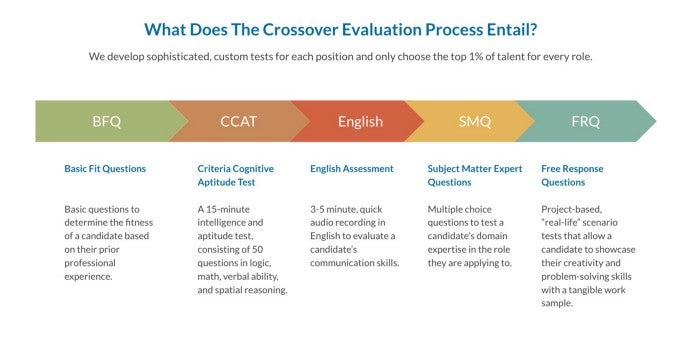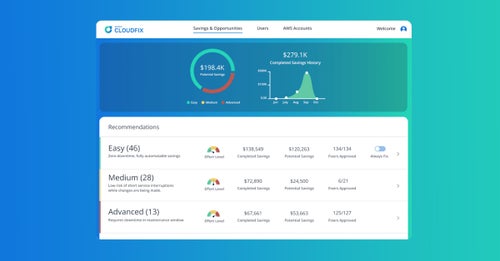We’re looking at the future of work, and it’s clear that the landscape is changing. The classic model of reviewing resumes isn’t working in today’s economy. Why? It isn’t consistent. This method encourages employers to evaluate a document that’s self-reported and not validated. So, how do companies adapt and recruit the right talent in this era? In this post, you’ll unlock our top recruiting tips guaranteed to save you money.
The typical recruiting process
Let’s start with the way that most companies handle recruiting. The standard recruiting process begins by posting an ad on job boards. Then, you receive resumes and filter them down to the candidates you want to interview. Several factors will impact whether or not you attract the right talent. Are they in the right market to see your ad? This idea is the first mistake because the best talent isn’t always in your location. There are 7 billion people living in the world, and the odds of the best talent residing in your city is highly unlikely. When you expand your view from local to global, you increase your chances of finding the best talent.
Beyond location, there’s another problem. You shouldn’t just be looking at resumes and interviewing. The concept of resumes is over 500 years old, and they don’t tell you everything you need to know. Leonardo Da Vinci created one of the first resumes, and it was in the same format we see today. Candidates essentially create a list of accomplishments over time. Then during the interviewing process, the recruiter asks a bunch of questions and analyzes the answers.
However, every answer is different, and so is every resume. Decisions are often based on unconscious biases of education, race, and gender. Furthermore, interview questions are usually not thoughtfully curated and don’t fully evaluate success factors for each role. This outdated process leads to several inconsistent, subjective data points. As a result, the outcome of the decisions made using this classic model is usually dead wrong.
The correct way to evaluate candidates
So what’s the right way to evaluate candidates when your goal is a long-term success?
We recommend using a marketing-led approach on Google, Linkedin, and Facebook to tell people you are hiring for a role. This approach has helped us attract top talent. On any given week, we have thousands of people applying for positions. Our unique approach is to test them so we can evaluate their skills using an objective set of questions. This is so that we can analyze how well someone can do in a specific role. If they’re on the technical side, we do a coding test and evaluate the programming skills. For non-technical roles, we do scenario-based testing using real-world challenges faced on the job. We look at all of these data points along with their work history to decide before interviewing someone.
In our model here at Crossover, 80–90% of candidates get cut after our subjective analysis. You might be surprised to know that about 15,000 Crossover applicants begin applications for roles they don’t have the requirements to perform. We take this seriously because we don’t want to waste applicants’ time by trying to qualify them for a role that they can’t excel in. That’s why it’s essential for us to identify unqualified applicants as soon as possible. This is what sets our process apart from others, and we believe that other companies should take this approach too.
How to save thousands
We’ve learned from recruiting thousands of applicants that skills testing from the start saves money and time. We learned firsthand that it’s costly to hire someone who doesn’t have the right skills or attitude for the role. A CareerBuilder study supports this fact. The research shows that it costs $7000 to $10,000 when you hire the wrong person entry or mid-level position. The cost of wrongfully hiring a manager? That comes in even worse and is typically more than $40,000. This is so crucial that we implemented RemoteCamps to prepare accepted candidates further and expose them to our processes and work culture before they start.
Embracing a new way of working
As Anthony Coppedge points out in his blog post about remote work, “The skills and techniques of remote management are different from office management, as office managers often value physical proximity as a proxy for team effectiveness, while remote managers value performance over a visible presence.”
Here at Crossover, we see the value in the new way of working, and we’ve changed our approach to management to adapt. Crossover’s workforce is 100% remote with 3,500+ partners from 116 countries. Since performance is the most critical measure of success for remote work, we want people to work intensely in continuous streams of deep work. Our technology takes care of monitoring productivity but having the right candidate is still crucial. They need to be someone who can work alone and focus on completing one complex task over long periods.
Remote work doesn’t allow for continuous hand-holding. That’s why we need to ensure that applicants have the right skills to do the job. We also recognize that our culture is unique, and we don’t expect candidates to understand it right away. That’s why we offer RemoteCamps to give people the proper skills before starting, so they have the best chance of success in doing their jobs.
We learned from testing thousands of candidates per week that resumes and interviews aren’t enough to hire top performers. Skills testing, in addition to reading resumes, is a better way to ensure candidates have the practical experience to succeed. Moreover, giving candidates real work challenges to overcome tells us how likely they are to be effective in their roles.
Our Testing Process

Let’s dig a little deeper into our testing process and break down what we accomplish with each section.
Basic Fit Questions
The BFQ test ensures the candidate is in the right pipeline. It’s a high-level filter to ensure they have the right role-specific experience for the role. This is assessing experience, not capabilities. BFQ’s correlate answers with the requirements and validates facts.
For example, a BFQ question looks like this: How many years of experience do you have in writing unit tests?
CCAT
According to Criteria a leading provider of web-based pre-employment testing services, the Criteria Cognitive Aptitude Test, or CCAT, measures your ability to problem solve, use new information, and think critically. How well you do on the test tells employers how easily you’ll pick up training for your new role. Research shows that cognitive aptitude is one of the best predictors of your job performance. It’s significantly more predictive than interviews, previous job experience, and your education level.
English
As one of the world’s largest remote work organizations, we need to ensure that everyone can communicate in a common language. English communication skills are essential for making sure the smart people we hire can utilize their problem-solving skills. You can hire the smartest Ph.D.’s in the world, but if they cannot communicate with their team, it’s worthless. English communication skills are one of the most critical features for remote work.
One of the fastest growing businesses in India is to learn to speak English courses. SimpliEnglish is one of India’s most popular online course providers. A study by KPMG projects India’s online education market is set to grow to USD 1.96 billion and around 9.6 million users by 2021 from USD 247 million and approximately 1.6 million users in 2016.
Having excellent English speaking skills dramatically increases workers’ salaries. Software Engineers in India who don’t know English get paid a low hourly rate. However, if they learn English, they can get a job with a better company and make even more. When they can speak and write at an average US competency level, they can make a very high-wage working in the global economy.
Subject Matter Questions
The SMQ is more granular, filtering out candidates who aren’t a fit. The questions are more academic testing their conceptual knowledge. They get to the core of what knowledge is essential for the role.
An example of a Technical Product Manager’s SMQ looks like this:
Which of the following data structures is non-linear?
Select one or more:
- Stack
- List
- Tree
- Graph
- Queue
Free Response Questions
FRQ’s are designed to help candidates show the skills they have accumulated. These questions test practical knowledge, and they can be a scenario or project based. We provide a real challenge that candidates would face on the job and ask them to solve it.
For example, if you are a software engineer, we ask you to take a small application and fix code errors and implement some new features. We have clear rubrics for scoring, and we expect candidates to invest time in this section. It’s the most extensive test in the hiring process, taking between 3–4 hours to complete. Crossover then analyzes the answers and chooses candidates with the problem-solving skills to succeed in the position.
An example of an FRQ from our Chief Architect pipeline looks like this:
Describe your most recent projects where you have used CI/CD infrastructure.
Better Testing = Better Retention Rates
So, how do we know that this method of hiring works? One statistic we look at for measuring success with testing is retention rate. When we started RemoteCamp in 2018, our 3-month retention rate was about 60%. Since starting RemoteCamp, our 3-month retention rate is now close to 80%. It’s clear that it pays to vet, test, and educate new hires. This method helps us hire the right talent faster and save money in the long term.
Conclusion
Recruiting is a costly investment, and getting it wrong can cost thousands of dollars. Learning from our experience can save you time and money. The bottom line is that resumes are no longer an effective way to make hiring decisions. The future of work and remote work requires a new process for recruiting talent globally. It’s critical to find objective ways to test candidates to evaluate if they have the right skills to succeed in the role.
For more business strategies for remote work, check out our blog, or better yet join us.















![The Crossover Cognitive Aptitude Test [Official CCAT Guide]](https://assets-us-01.kc-usercontent.com:443/7beb5311-75a4-0049-50f5-8f58fd55aba7/57f22476-19f4-4309-a615-a27b35061cda/CCAT_Guide_Header2.jpg?fm=jpg&auto=format&w=500&h=500&fit=clip)











